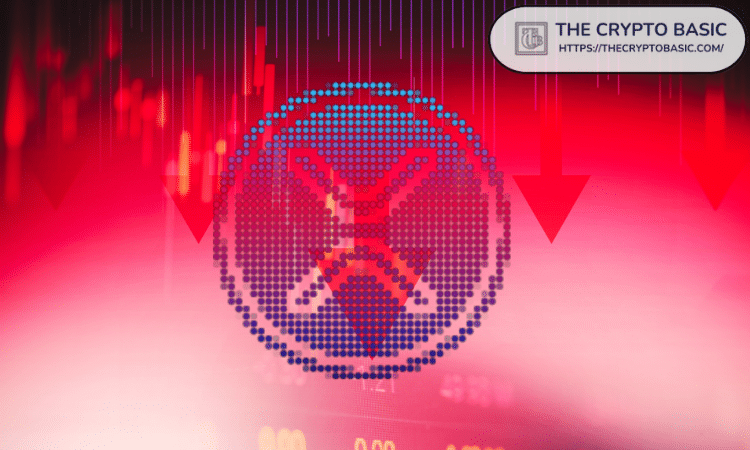A recent ruling from a US District Judge challenged the decision made by Judge Analisa Torres in the Ripple case, which declared certain sales of XRP non-security offerings.
In a recent development, SDNY District Judge Jed Rakoff delivered a significant blow to the ruling in the XRP case. The judge’s decision allows the SEC to proceed with its case against Terraform Labs and founder Do Kwon, firmly rejecting the distinction made in the Ripple lawsuit between public and institutional sales.
The court’s decision on Terraform Labs’ case comes to light thanks to John Reed Stark, who brought it to the public’s attention via Twitter. Stark, a former SEC attorney in the agency’s Enforcement Division, revealed Judge Rakoff’s ruling on Terraform Labs’ motion to dismiss the SEC’s lawsuit against them.
Newsflash: Ripple Decision Already in (Big) Trouble
SDNY District Judge Jed Rakoff today allowed the SEC to go forward with its case against Terraform Labs and founder Do Kwon. In doing so, Judge Rakoff specifically rejected the distinction made in the Ripple case between public… pic.twitter.com/JZZ8vukfFt
— John Reed Stark (@JohnReedStark) July 31, 2023
Recall that Terraform Labs and Do Kwon’s lawyers had asked the judge to dismiss the SEC’s case. The lawyers cited the ruling in the Ripple case, as they argued that the assets in question are not securities under the purview of the SEC.
However, the SEC replied by advocating against following Judge Analisa Torres’s reasoning in the Ripple case and expressed its intent to appeal the decision.
In his ruling, Judge Rakoff denied issuer Terraform Labs’ motion to dismiss the SEC lawsuit, asserting that the SEC has jurisdiction and a plausible claim that TerraUSD (UST), the Anchor Protocol, and LUNA may have violated securities laws.
Judge Rakoff Challenges Judge Torres’s Ruling
In an emphatic statement, Judge Rakoff directly challenged Judge Torres’s ruling in the Ripple case, expressing his disagreement with the approach taken in that judgment.
He criticized the distinction between public and institutional sales, which the Ripple case considered. In his view, the Howey test does not differentiate between purchasers based on the origin of their coins, as all purchasers could reasonably expect that they will profit based on the defendants’ efforts.
The judge’s ruling also challenged the Major Questions Doctrine, a Supreme Court ruling that limits regulatory agencies from exceeding their mandate. Some crypto defendants, including Coinbase, have used the argument against the SEC.
Judge Rakoff dismissed this objection, stating that the cryptocurrency industry does not have the same “vast economic and political significance” as other regulated industries.
To emphasize the significance of this decision, Stark noted that Judge Jed Rakoff is regarded as one of the most respected securities law jurists in the US federal court system. The former SEC attorney also highlighted Rakoff’s reputation for employing an independent approach.
Ripple CTO Cites Peculiarities in Terra Case
David Schwartz, Ripple’s CTO, expressed his reservations about the court’s ruling, noting that the decision seemed to rely on the unique properties of Terraform Labs’ scheme rather than the general characteristics of cryptocurrencies.
This ruling seems to be based no some very unsual properties of this particular scheme and not the way cryptocurrencies generally work. None of the below, the crux of the reasoning here, applies to typical cryptocurrencies as far as I can tell. pic.twitter.com/P41jiwlZaG
— David "JoelKatz" Schwartz (@JoelKatz) August 1, 2023
Schwartz pointed out that the court’s rejection of the Ripple case did not appear to be solely based on a fundamental disagreement with its reasoning. Instead, it hinges on the differences in the facts between the two cases. He offered two possible interpretations of the court’s stance:
One instance is that the court disagreed with the Ripple decision because it applied additional tests not part of the Howey test. Therefore, it indicates that the court might not use or follow the Ripple ruling in this case. According to Schwartz, this is the worst case for supporters of Torres’s decision.
The second interpretation is that the court disagreed with the argument that it should follow the Ripple decision in the Terraform Labs case due to peculiarities in the Terraform Labs lawsuit, not because the Ripple decision directly implicates the Howey factors.
In this case, despite the specific facts in the Ripple case justifying the distinction between public and institutional sales, the court suggests that these facts might not be applicable in the Terraform Labs case. Schwartz noted that this would be the best case for supporters of Torres’s ruling.
Amid the recent development, XRP has broken below the $0.70 price territory. XRP closed below the $0.70 psychological support yesterday for the first time since July 13. The asset is now trading for $0.6924 as of press time, down 2% over the past 24 hours.
DisClamier: This content is informational and should not be considered financial advice. The views expressed in this article may include the author's personal opinions and do not reflect The Crypto Basic opinion. Readers are encouraged to do thorough research before making any investment decisions. The Crypto Basic is not responsible for any financial losses.


